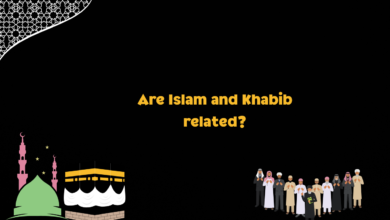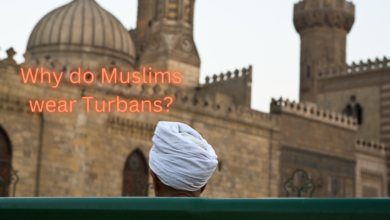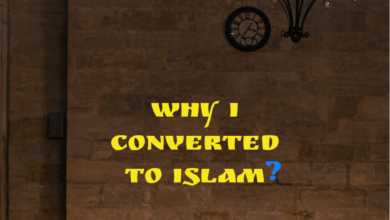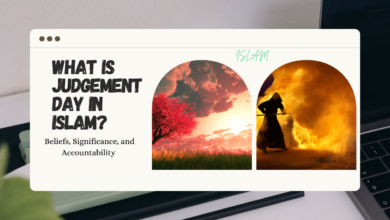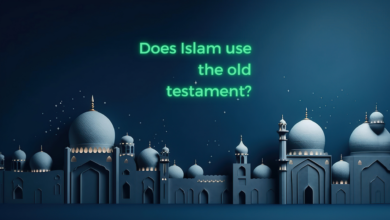What does Islam say about Christianity?

Exploring Islam’s Perspective on Christianity
Islam and Christianity are two of the world’s largest and most influential religions, both sharing historical connections and theological similarities while maintaining distinct beliefs and practices. Understanding what Islam says about Christianity provides insight into the complex interplay between these two faiths.
Shared Roots and Commonalities:
Both Islam and Christianity trace their origins back to Abraham, whom they consider a central figure in their respective faiths. Islam acknowledges many of the biblical prophets, including Adam, Noah, Abraham, Moses, and Jesus, and holds them in high regard as messengers of God. The Quran, the holy book of Islam, contains stories about these prophets, often mirroring accounts found in the Bible.
Furthermore, Islam and Christianity share core moral principles, such as the importance of charity, compassion, honesty, and respect for one another. These values form the foundation of both faiths, emphasizing the importance of treating others with kindness and dignity.
Differences in Theological Beliefs:
While there are areas of commonality, there are also significant theological differences between Islam and Christianity:
The Nature of God: Christianity holds the doctrine of the Trinity, asserting that God exists as Father, Son (Jesus Christ), and Holy Spirit. Islam, on the other hand, emphasizes the absolute monotheism of God (Allah), with no partners or divisions.
Jesus Christ: While both religions recognize Jesus as a prophet, Islam does not regard him as divine or the Son of God. Instead, Islam views Jesus (known as ‘Isa’ in Arabic) as a chosen messenger of God, born to the Virgin Mary through miraculous means. Muslims believe that Jesus performed miracles and will return in the future.
Salvation: Christianity emphasizes salvation through faith in Jesus Christ as the savior and the forgiveness of sins. In contrast, Islam teaches salvation through faith in one God, living a righteous life, and adhering to the Five Pillars of Islam, which include acts of worship, charity, fasting, prayer, and pilgrimage.
Scriptures: While both faiths share some common stories and themes, their primary scriptures differ. Christianity’s central text is the Bible, comprising the Old Testament and the New Testament. Islam’s primary scripture is the Quran, which Muslims believe to be the literal word of God as revealed to the Prophet Muhammad.
Tolerance and Coexistence:
Islam encourages its followers to show respect and kindness to the People of the Book, a term used to refer to Jews and Christians, who also follow monotheistic religions with scriptures. The Quran acknowledges the commonalities between these faiths and advocates peaceful coexistence and dialogue among believers.
Islamic history contains examples of tolerance towards Christians in various regions. For instance, during the medieval period, Muslim rulers often allowed religious minorities to practice their faith and maintain their places of worship.
Challenges and Opportunities:
Despite the shared history and theological intersections, Islam and Christianity have experienced periods of tension and conflict. Misunderstandings, political factors, and social dynamics have contributed to these challenges. However, there are also numerous opportunities for interfaith dialogue and cooperation, with many individuals and organizations actively working to foster understanding and harmony between these faith communities.
In conclusion, Islam’s perspective on Christianity reflects a complex relationship marked by shared heritage, common values, and theological differences. While both religions have their distinct beliefs, their teachings also emphasize compassion, respect, and coexistence. In an increasingly interconnected world, exploring these commonalities and differences can lead to greater understanding and peaceful cohabitation among followers of both faiths.
Frequently Asked Questions: What Does Islam Say About Christianity?
What is the Islamic perspective on Christianity?
Islam recognizes Christianity as one of the monotheistic Abrahamic religions, along with Judaism. Muslims believe in the importance of respecting the religious diversity and the right of Christians to practice their faith.
How do Muslims view Jesus in Islam?
In Islam, Jesus (known as “Isa” in Arabic) is considered one of the greatest prophets. Muslims believe in his miraculous birth to Mary (Maryam), his message of monotheism, and his miracles. However, Islam differs from Christianity in that it does not consider Jesus as divine or the Son of God.
Is the Bible considered a holy text in Islam?
Yes, the Bible is recognized in Islam as one of the sacred scriptures that was revealed to previous prophets. However, Muslims also believe that over time, the original message of the scriptures might have been altered, which is why they consider the Quran to be the final and unaltered revelation.
What do Muslims believe about the Trinity?
Muslims do not accept the concept of the Trinity as described in Christian theology. Islam emphasizes the strict monotheism of God (Allah), and the concept of a triune God contradicts this principle from the Islamic perspective.
Are Christians and Muslims allowed to interact and associate with each other?
Yes, Islam encourages respectful interactions between people of different faiths, including Christians and Muslims. It’s important to maintain good manners and peaceful coexistence while engaging in dialogue and mutual understanding.
Are Christians considered “People of the Book” in Islam?
Yes, Christians are considered “People of the Book” (Ahl al-Kitab) in Islam, along with Jews. This term acknowledges their adherence to monotheistic faiths and the possession of scriptures that were revealed by God.

